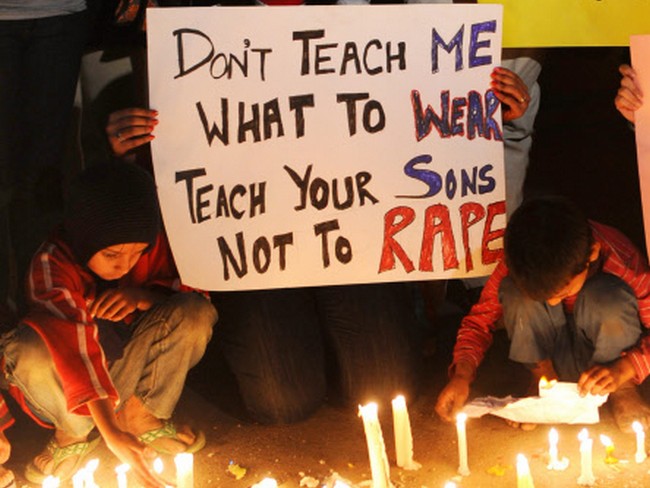The Delhi Rape And The Struggle For Space
By Justin Podur
31 January, 2013
Countercurrents.org

Sometimes, at night in the city where I live, in Toronto, I will be walking alone to or from the subway station. No one else will be on the street, and I'll see a woman walking towards me in the distance. My protocol is to cross to the other side of the street where I am clearly visible, and let her pass with a lot of distance between us. When I'm walking behind a woman at night, I'll do the same thing – cross the street, quickly pass so that she can see me in front of her rather than hearing me behind her.
I might know I am a harmless guy, but she doesn't. By giving her the space, she, as a woman traveling alone, has one less thing to worry about.
On streets, on buses, on subways, on campuses, in markets, there is a range of small behaviours that men can do to open, or close, a public space, to women. Walking on the street in Delhi, I've seen groups of 5-6 young men walking together, expecting everyone else to get out of their way. Or a group of men clustered around a motorcycle. The next step, which I've also seen, is to stare, or leer, pointedly, at a woman or a small group of women in the vicinity. Such leering might be innocent, it might be a look of interest or attraction, but its communicative effect is different. It communicates: This is my space, this is a male space, and if you want to be in it, you will have to accept my gaze.
In a macho, male context, extended eye contact can often be an intimidation, an invitation to fight. Rory Miller, who worked in US prisons and writes about violence, classifies this type of male fight as a “Monkey Dance” - a ritual designed by evolution to establish who is the biggest monkey. Beginning with an extended gaze, it escalates as one man asks: “What are you looking at?” The first man replies: “No, what are you looking at?” If neither party backs down, the conversation eventually escalates to physical blows.
Whether directed at another male or at a female, that kind of steady gaze is a form of intimidation. But the chain of escalation is different when directed at a female. If the woman asks “what are you looking at?”, the man can then comment and move closer, often with a response like: “nothing baby, it's OK, don't get so angry”. Unwanted gazes escalate to unwanted verbal contact, to unwanted physical contact. Each step in the escalation is small, but in each step is contained the sense of entitlement and the dehumanizing of the woman that make larger crimes like rape and murder possible.
The underlying logic is one that claims public spaces for men, in which women are unwelcome. The atrocities committed against women are part of a backlash against the inevitable entry of women into these spaces and their assertion of their rights. In the workplace, these take the form of sexual harassment; in the home, of domestic violence, and in public, the crowding of space, the sexualized gazes and comments, and the escalation to violence.
Feminist activists and protesters in Delhi have rightly called attention to the fact that male behaviour is the problem. The slogan “don't tell your daughter not to go out, tell your son not to rape” puts responsibility where it belongs. But there is a bit more to say to men. A lot of what we do to close space to women, we may not even realize we are doing. But if we are anywhere on this continuum, we are part of the problem. Are men in the streets, markets, subways, buses, and campuses going to treat women as equals, or try to use violence to drive them out? I believe that women will continue to successfully assert themselves and enter these spaces, and whenever they do, the spaces themselves become better. The choices men make can make the process easy, or violent and difficult.
Justin Podur is an Associate Professor of Environmental Studies at York University in Toronto. This semester, he is a Visiting Professor at Jamia Millia Islamia in Delhi.
E-Mail: [email protected]
Comments are moderated


